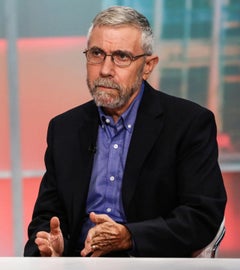MI SELECCIÓN DE NOTICIAS
Noticias personalizadas, de acuerdo a sus temas de interés

By normal human standards, this is a big nothing. But in this case Clinton Rules - under which malign behavior is the default assumption - apply: Where there’s smoke there must be fire, even if everyone knows that the usual suspects are using big smoke machines.
But Jeffrey Toobin at The New Yorker recently added a further twist: To the extent that some things may have been classified after the fact, it’s a very good guess that they shouldn’t have been - because the government classifies everything.
I know a bit about this from firsthand, if very old, experience. I was the senior international economist at the Council of Economic Advisers from 1982 to 1983. (Yes, Ronald Reagan was president, but it was a technocratic post. The senior domestic economist was a guy named Lawrence Summers. Whatever happened to him?) In that post, I received a lot of reports labeled “SECRET NOFORN NOCONTRACT PROPIN ORCON” (or no foreign nationals, no contractors, proprietary information, origin controlled). I can’t remember a single document so labeled that included information that was remotely sensitive - or for that matter, that contained stuff that you couldn’t read in The New York Times or The Washington Post.
And pretty soon I got very casual about the whole thing. We had a security officer who would come through our offices at night, and if he found classified material left out he would grab it, put it in the safe and issue a demerit. Luckily, the council chairman got even more black marks than I did.
Of course, I wasn’t working in an area of genuine security concern. But that’s kind of the point.
Carter, Reagan and Machiavelli
Rex Nutting, an editor at MarketWatch, wrote a very nice article recently about the reality of Jimmy Carter’s presidency, which has been distorted beyond all recognition by the myth of St. Reagan. As Mr. Nutting points out, Mr. Carter presided over faster average job growth and lower unemployment than did President Reagan; unfortunately for Mr. Carter, the timing was bad. He had vigorous growth for most of his presidency, but a recession at the end.
Or to be more specific: The Federal Reserve put the economy through the wringer from 1979 to 1982 in order to bring inflation down. Mr. Carter presided over the first part of that double-dip recession, and got wrongly blamed for it. Mr. Reagan presided over the second part, and wrongly got credit for the subsequent recovery.
What you see in all this is the remarkable political dominance of recent rates of change over even medium-term comparisons. Real median family income, which rose significantly throughout 1979, was still far from having returned to that peak by the end of Mr. Reagan’s first term. Nonetheless, Mr. Carter was booted from office amid derision, while Mr. Reagan won a landslide as a triumphant economic savior.
But Machiavelli knew all about this: “Hence it is to be remarked that, in seizing a state, the usurper ought to examine closely into all those injuries which it is necessary for him to inflict, and to do them all at one stroke so as not to have to repeat them daily,” he wrote in “The Prince.”
Make sure that the bad stuff happens early in your rule so that you can claim credit when things get better, even if you leave the nation in a worse condition than it was when you arrived.